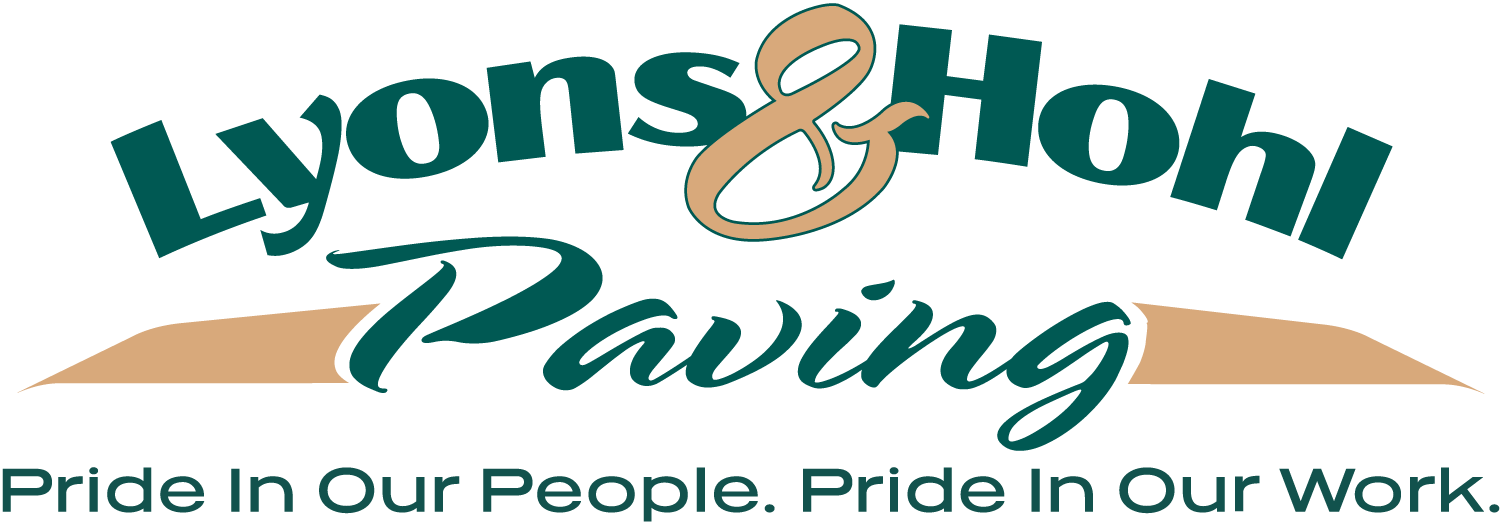LEARN THE ANSWERS TO YOUR TOP QUESTIONS ABOUT PARKING LOT DEPRECIATION
A parking lot is an essential asset to any business and is often one of your customers’ first interactions with your company. As a smart business owner, you know that maintaining your parking area by using a professional paving contractor is essential to providing a positive experience for your clients. So, if you’ve wondered about depreciation for your parking lot, Lyons & Hohl Paving is here with answers to some of your top questions.
What is Depreciation?
Depreciation is an annual income tax deduction that allows you to recover the cost or other basis of a particular property over the time you use that property. It allows for wear and tear and deterioration of the property. Depreciation helps expense the cost of a fixed asset over many years on your taxes instead of expending the total amount the year you purchased it and put it into use.
The IRS has specific restrictions on what assets can be depreciated and for how long, so it’s important to know the rules and contact a qualified tax professional to ensure your deductions are correct.
Does My Paved Parking Lot Qualify for Depreciation?
Land does not qualify for depreciation, but land improvements do, such as parking lots paved by an asphalt paving contractor. To qualify, you must:
Own the paved parking area, even if you’re still paying a mortgage for the property
Use the parking lot to help produce taxable income for your business, like giving your customers a place to park their vehicles while shopping
Ensure the asset has a determinable useful life, which means that you use your parking lot for multiple years and it is subject to deterioration
Use the parking area for more than a year
When Does Depreciation Start and End?
Parking lot depreciation begins the year you place it in service for your business to produce income. For example, if a paving company, like Lyons & Hohl Paving, creates a new parking lot for your business, you can start deducting depreciation the year it is finished and placed into use.
Depreciation ends when you have fully recovered your cost or have sold the property to someone else. The IRS determines that parking areas are a 15-year depreciable property, meaning their useful life ends after 15 years. The good news is that you can continue to claim depreciation even if your parking lot isn’t in use.
For example, say a global pandemic requires a shutdown of businesses. In that case, if your company closes for a few months with no one using the parking lot, you can still deduct depreciation for that year.
How Do I Calculate Depreciation?
The most common and easiest way to depreciate a parking area is through the straight-line method, which evenly distributes the depreciation value over the years of its useful life. For parking lots placed into service after 1987, you’ll use the Modified Accelerated Cost Recovery System (MARCS) from the IRS to calculate depreciation. To do this, take the cost of the parking lot and subtract the salvage value and divide that total by 15 years.
There are other ways to calculate depreciation of your parking area; however, we recommend you see an experienced tax professional to see what works best for your business. It’s important to note that land improvements, like parking lots, do not count for the Section 179 deduction on your taxes.
What About Maintenance or Resurfacing?
You likely already know that properly maintaining your parking lot can ensure it lasts from 15 to 20 years, especially if you hire a paving contractor who uses seal-coating on your parking lot regularly. However, regular maintenance like these expenses is considered operational expenses, and thus the costs are depreciable.
If you have your business parking lot resurfaced after years of use, then the resurfacing cost can be considered a capital expense, which you can depreciate on your taxes.
Generally, the IRS asks you to consider these expenses in a 10-year time frame. Suppose you’ll do the task more than once in 10 years, like regular maintenance. In that case, it’s an operational expense. If you will only one time 10 years, then it’s a capital expense.
Lyons & Hohl Paving is Your Trusted Local Paving Contractor!
With over 30 years of experience as a trusted paving contractor, Lyons & Hohl Paving can handle any of your commercial or industrial paving needs in Central Pennsylvania! We’ll ensure our paving services exceed your expectations, and high-quality service is always our top priority. Our qualified technicians can help ensure you get years of use for your parking lot, keeping its aesthetic appealing to your customers.
Get a free quote today to see how we can help maintain one of your most important business assets—your parking lot!
